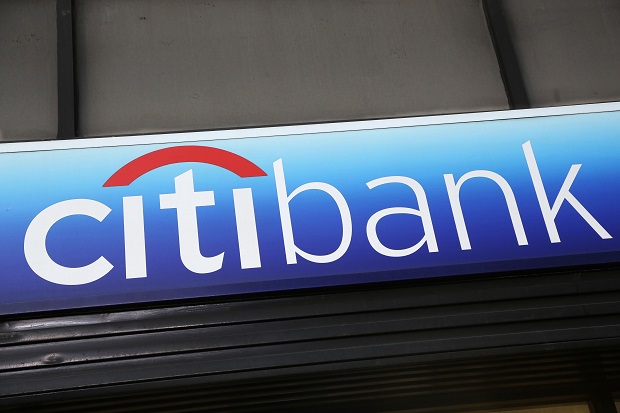
In this Jan. 15, 2015 photo, a Citibank sign hangs above a branch office in New York. The Consumer Financial Protection Bureau on Tuesday, July 21, 2015, said that Citi will have to issue refunds to 8.8 million affected consumers who paid for credit card add-on products and services, like credit score monitoring or “rush” processing of payments. AP
NEW YORK, United States — Nine million credit card customers will receive refund checks from Citigroup after U.S. regulators forced the bank to repay $700 million and fined it $70 million for illegal and deceptive practices.
The order, coming from the Consumer Financial Protection Bureau (CFPB), is the latest multimillion dollar settlement against the largest credit card issuers for their role in selling “add-on” products to customers, such as credit score monitoring or “rush” processing of payments. Bank of America reached a similar, slightly larger settlement with regulators in 2014 and JPMorgan Chase was fined in 2013.
Under an agreement announced Tuesday with the CFPB, Citi will issue refunds to 8.8 million affected consumers who paid for these types of add-on products, and will pay two separate $35 million fines to the CFPB and to the federal bank regulator the Office of the Comptroller of the Currency.
The settlement comes on the five-year anniversary of the creation of the CFPB, which came into existence through the passage of the Dodd-Frank law that overhauled the financial industry following the 2008 financial crisis.
“We continue to uncover illegal credit card add-on practices that are costing unknowing consumers millions of dollars,” CFPB Director Richard Cordray said in a statement. “This is the tenth action we’ve taken against companies in this space for deceiving consumers.”
Some of the illegal activity by Citi goes back to as early as 2000, the CFPB said, and ended in 2013, and covers a range of products sold by Citi and third-party affiliates.
In one allegation, Citi telemarketers were said to have sold consumers identity theft protection services with a 30-day “free” trial, when no such free trial existed; or signed up consumers for an add-on service when it was ambiguous whether the consumer actually said they wanted it. In another situation, Citi sold credit monitoring services when Citi wasn’t performing such services at all, or were not actively monitoring a consumer’s credit file with credit reporting bureaus.
Citi also allegedly misrepresented its customers by charging a $14.95 “expedited” payment fee to customers who made over-the-phone payments and did not tell consumers about no-fee options.
Credit card add-on services were a lucrative source of revenue for banks for several years, sold to consumers as ways to protect their credit scores or identities or protect them if they lost their jobs. Banks’ marketing of such services largely ended after increased regulatory scrutiny.
“Add-on services, for the most part, provide no benefit to consumers and people should be very careful to sign up for them,” said Nick Bourke, an expert at the Pew Charitable Trusts specializing in consumer lending issues.
While credit card companies have largely ended the practice, Bourke and other consumer financial advocates say they are still sold by some high-cost installment loan providers or payday lenders.
In a statement, Citi said it stopped the practices and has been issuing statement credits since 2013 to the affected customers. For the customer who no longer has an account at Citi, a check will be mailed.
Citi has already set aside the money to pay for the settlement, a spokeswoman said.
Citigroup shares rose 25 cents to close at $59.10, despite a broad market decline.

